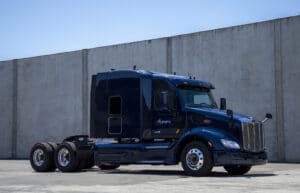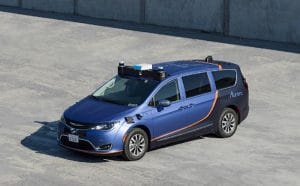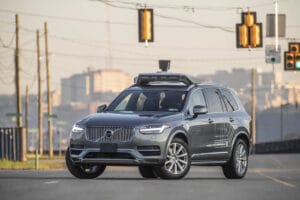
Aurora, the autonomous vehicle technology company founded by Google and Waymo veteran Chris Urmson, is buying Uber’s self-driving vehicle Advanced Technology Group, or ATG.
The deal, valued at roughly $400 million, was announced in a blog post on Aurora website. It was, according to analysis by various Silicon Valley websites, a bargain for Aurora considering the substantial sums Uber has sunk into it. Additionally, Aurora will continue to work with Uber on AVs after the deal is completed.
AVs are considered the ultimate path to profitability by Uber, which now relies on part-time drivers or gig workers to ferry passengers, using its celebrated phone app. Uber has invested huge sums in its internal AV project; however, was crippled in 2018 when one of its test vehicles struck and killed a pedestrian in Tempe, Arizona.
(Aurora’s AVs keep on trucking through pandemic.)
Urmson said Aurora, which is privately held, will move ahead with its effort to develop technology for self-driving vehicles. ATG’s team and technology will accelerate “our mission and the delivery of our first product safely, quickly and broadly.

“By adding the people and technology of Uber’s Advanced Technologies Group to the incredible group we’ve already assembled at Aurora, we’re shifting the landscape of the automated vehicle space,” Urmson added in the post on Aurora’s website.
“With the addition of ATG, Aurora will have an incredibly strong team and technology, a clear path to several markets, and the resources to deliver. Simply put, Aurora will be the company best positioned to deliver the self-driving products necessary to make transportation and logistics safer, more accessible, and less expensive,” he said
Urmson, a leading researcher in AV technology, founded Pittsburgh-based Aurora in 2017 after leaving Google. He noted during an appearance the Center for Automotive Research briefing seminars earlier this year, the investment in AVs had slowed in the past couple of years.
The investment in AVs was once expected to top $40 billion during the next half decade but the estimates have now shrunk to $20 billion to $25 billion and even that remains at risk in the face of pandemic, which has forced automaker and other companies with an interest in the technology to re-evaluate their priorities, he said.
But the pandemic also has focused interest in automated vehicles that can carry goods or deliver food, opening new opportunities for automated vehicle technology. Waymo, Alphabet’s self-driving unit for whom Urmson worked before leaving to organize his own company, recently announced it was planning a program to automate commercial vehicles with Fiat Chrysler Automobiles N.V.

(Hyundai, Kia invest in autonomous vehicle startup Aurora.)
Last summer, Aurora acquired for an undisclosed sum a company in Bozeman, Montana that has developed a type of lidar that “sees” more than 300 meters in front of a vehicle. Lidar is an essential building block for automated driving – except for Tesla CEO Elon Musk – and the system developed by Blackmore caught Aurora’s eye because it would be especially helpful in guiding heavy trucks on interstate highways, he said.
Urmson noted during the CAR briefing that Aurora does not intend to build vehicles. “There are companies that have built vehicles for more than 100 years and are very, very good it.”
Instead, Aurora is concentrating on developing the hardware and software needed to create an automated driver. In the future, the company’s emerging business model could be something like that used in the airline industry where the carrier purchases an aircraft from Boeing or Airbus and then specifies, which company it wants to supply the engines for the plane, Urmson said.
Aurora will want customers to specify its system for the vehicles they order.

Hyundai Motor Co. and Kia Motors Corp. have invested in Aurora, which has been collaborating on self-driving technologies on Hyundai’s flagship fuel cell vehicle NEXO.
Aurora’s self-driving system, the Aurora Driver, with its lidar, radar and cameras, offers autonomous vehicles the ability to monitor, react and adapt to different surroundings.
(Uber test driver behind the wheel during fatal crash facing trial.)
Urmson has been working on self-driving vehicles since he was a PhD candidate at Carnegie-Mellon University. One of his teammates on the DARPA challenge while he was at Carnegie-Mellon was Bryan Salesky, the co-founder and CEO of Argo AI, the AV technology firm working with Ford Motor Co. and Volkswagen AG.







